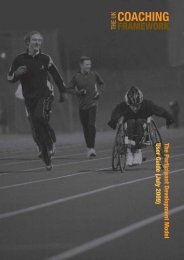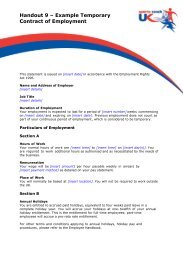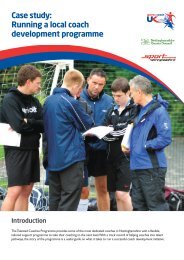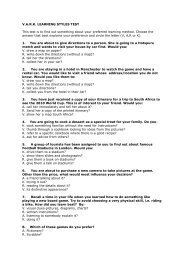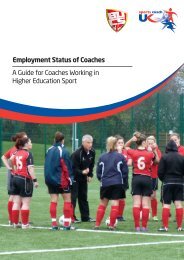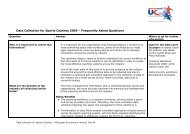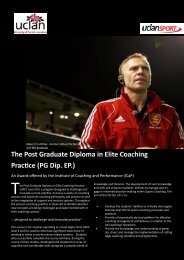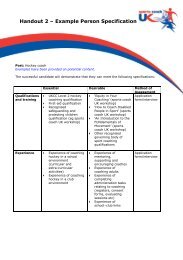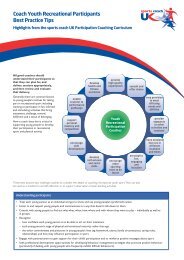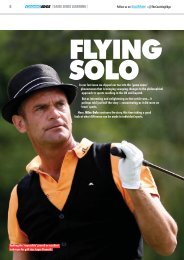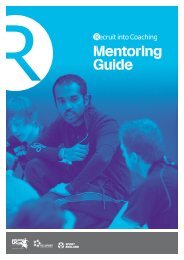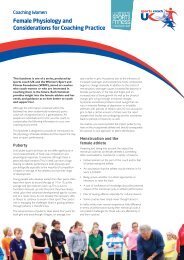Creating a Mentoring Programme for Sport: A ... - sports coach UK
Creating a Mentoring Programme for Sport: A ... - sports coach UK
Creating a Mentoring Programme for Sport: A ... - sports coach UK
Create successful ePaper yourself
Turn your PDF publications into a flip-book with our unique Google optimized e-Paper software.
10<strong>Creating</strong> a <strong>Mentoring</strong> <strong>Programme</strong> <strong>for</strong> <strong>Sport</strong>2An ideal mentoring relationship is considered to bea reciprocal one in which both parties gain in someway from the experience. There<strong>for</strong>e, a positivementoring relationship can be characterised by:• sharing – of ideas, knowledge, expertise,resources, beliefs and values• mutual respect – reciprocal value <strong>for</strong>knowledge, expertise and interpersonal skills(how they deal with people and situations)• mutual trust – a sense of safety and anenvironment within which shortcomings can beshared without judgement; a faith, confidenceand belief in each other• reciprocity – of learning and investment inthe relationship• care and concern – directed towards personaland professional development.The relationship process<strong>Mentoring</strong> can be viewed as a process, consisting ofa series of interactions from which <strong>coach</strong>es canexpect to gain new skills and knowledge, andfeedback on per<strong>for</strong>mance. This process is atransitional phenomenon that varies in intensity anddepth as it evolves over time, consisting of threefeatures: initiation; transition; and ending.• Initiation – This generally occurs when thementee is in a new, challenging position orduring a significant shift in their development.The impetus to engage in a mentoring exchangeoften occurs naturally when a mentee and anexpert (mentor) are inadvertently drawntogether, usually as a result of some mutualinterest or goal.• Transition – As the mentorship develops, thereappears to be a shift whereby the mentee gainsa better sense of capability (confidence andself-belief) and is able to engage in/contribute tothe process more actively. This trans<strong>for</strong>mationalshift sees the mentee give back to therelationship, and reciprocal learning occurs.• Ending – Ideally, the mentorship only ends whenneither mentee nor mentor has a need <strong>for</strong> it tocontinue. The established nature and structureof their relationship is substantially changed,either by increasing physical or psychologicaldistance.It should be noted that these stages don’t alwaysarrive in a logical, clean sequence.© Alan Edwards




